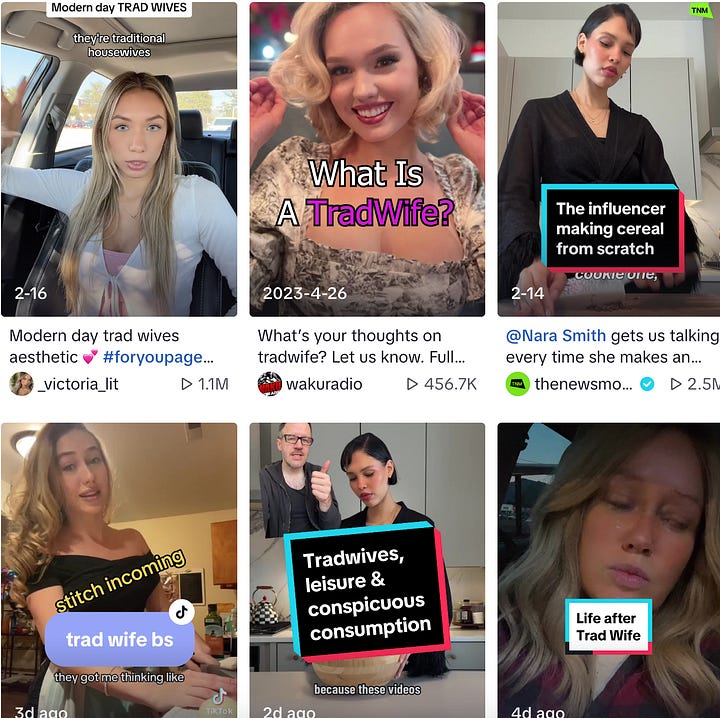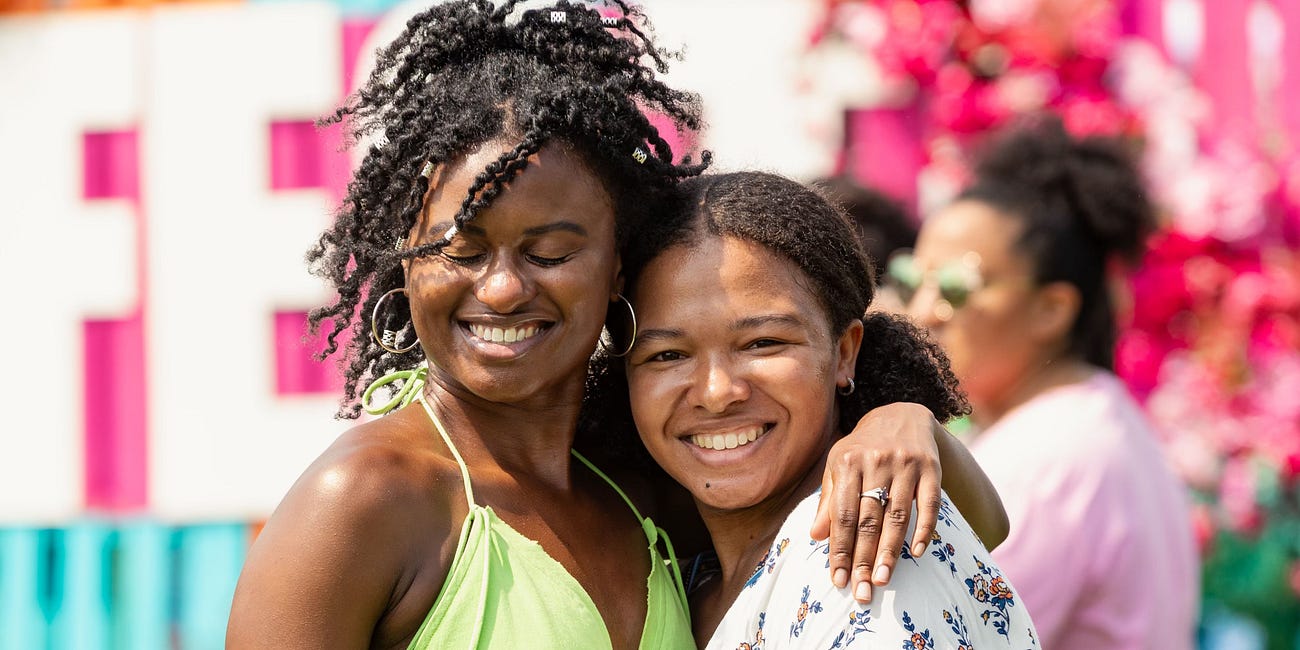

I am finishing Wayward Lives, Beautiful Experiments by Saidiya Hartman. The historical nonfiction recounts early 20th-century Black women who had to negotiate freedom in cities now that the Civil War and Reconstruction had ended. The book introduces new layers to known figures like WEB DuBois, who used to be overly obsessed with purity culture, or Ida B Wells, traveling across the country collecting Black women’s stories. Hartman redefines terms like prostitution, deviancy, and, of course, waywardness by analyzing white social workers’, pathologists’, and sociologists’ supposedly neutral observations. Hartman writes about wayward Black Women who, I would say, live soft lives. They accept and let go of work, love, and relationships when they don’t serve them. They’re not concerned with productivity but with cultivating a life with beauty and sensuality.
Lifestyle vloggers misdefine softness as traditional. They promote domesticity as beautiful and the seat of feminine power and blame feminism for convincing women they needed to hustle and grind for an unsatisfactory lifestyle. White and Black women in pastel aprons hand-roll cereal from sprouted wheat to avoid feeding children “poison” (boxed cereals) while their husbands provide. Women in silk robes light candles and open drawers lined with clear plastic bins. I see post after post where women who graduated from top undergraduate and graduate programs claim they found more fulfillment once they left high-powered jobs to make videos baking cinnamon rolls in the shape of bunnies.
And unfortunately, they are right. The combative spaces where they worked needed to be more sustainable. We learned during the pandemic that many did not have flexible sick, vacation, or maternity leave. I’ve worked at more toxic jobs than not where expectations changed daily, my work was never enough, and my managers monitored my “attitude.” Working as if I were three people was supposed to be “exciting” and “a development opportunity.” If I couldn’t keep up, that indicated my worth.
I can understand why Kelis left a music industry that belittled her accomplishments, told her she wasn’t enough, and failed to support her craft monetarily. She has since turned to homesteading, creating content about her chickens, organic products, and recipe development. Also, kneading cinnamon rolls and pizza dough helps relieve stress after a hard work week. However, toxic work environments continue to persist for those who cannot leave if the only solution is for women to get out of “men’s work.” There must be a way to keep our working lives from callousing our internal lives.
I side-eye the lifestyle bloggers because their alternative is not possible for most. I am not the first, nor will I be the last, to critique trad-wife content. They yearn for a time in American history that never existed. Black women’s unpaid or underpaid labor underwrote the lifestyles of middle- and upper-class white women. And this domestic work was not as easy as modern influencers portray. The thought of having to take on this demeaning work inspired Sofia to punch a white man in The Color Purple. Domestic workers also made up the foot soldiers in the Montgomery bus boycott and the broader Civil Rights Movement.
Additionally, the lifestyle they imagine and profit from will only be possible long-term with domestic workers’ labor. I assume these creators still employ domestic workers without public acknowledgment. Because who does the less glamorous work we don’t see, like scrubbing toilets, dusting ceiling fans, or cleaning grout on bathroom tiles, while content creators spend hours filming, editing, and posting every day? Today’s domestic workers, who still are disproportionally Black, Brown, and immigrant women, have advocated for “Right to Know” Acts, requiring employers to disclose hazardous materials in cleaning products, and increased wage protections. The dignity these workers fight for shows that “domestic bliss” is not a soft life.
And so, a soft life won’t necessarily mean surrounding yourself with “quiet luxury” or homeschooling your kids. As culture worker Kimberly Drew notes in the podcast Vibe Check, this feminine power is about attraction, flow, and beauty in her working environments. Poet and feminist scholar Audre Lord talked about erotic sensual power being the root of female power. I think about the Black women-led movements that prompt us to reconsider our relationship to work, grind, and hustle culture. Black women dreaming of lives that center community over corporations create more community gardens, collect oral histories from elders in the community, or organize mutual aid networks. The work does not offer individual outs but imagines better realities built on communal care.
The personal, professional, and familial upheaval I’ve faced, combined with the societal, political, and economic unrest continuing in the world, does make escapism attractive. I read shitty kindle unlimited fiction for this reason. However, despite weekly implosions, I cannot bring myself to leave my chosen field. I value truth and see criticism as a form of truth-telling. But being a critic is a form of waywardness. We are constantly going against the grain. But, I am slowly learning to leave the politics of media for those who have the energy and focus on the work of caring about arts and culture. I have to trust that by focusing on sharpening my skills and asking for help from my family and support network, the opportunities for me will come, and I won’t need to exhaust myself.
If you like this, then read…
How to be weightless...
I wrote about flying for a recent review of the exhibition Cake by Wura-Natasha Ogunji. In the piece, I explore how the flying Black people in her works seem weightless and unencumbered to me. They’re not bogged down by systemic oppression…
Talking about Natural Hair
I went to CurlFest last weekend, and it could be a great moment to think about my curl journey and reflect. The festival was on hiatus through the pandemic. Last Saturday was the first time Black folks came to Randall’s to celebrate their natural hair since 2019. CurlFest, only in its ninth year, feels like a given.






I’ve been thinking a lot about the trad wife and soft life fads- thanks for your take! And agreed, there is a lot of underpaid domestic labor behind all of this